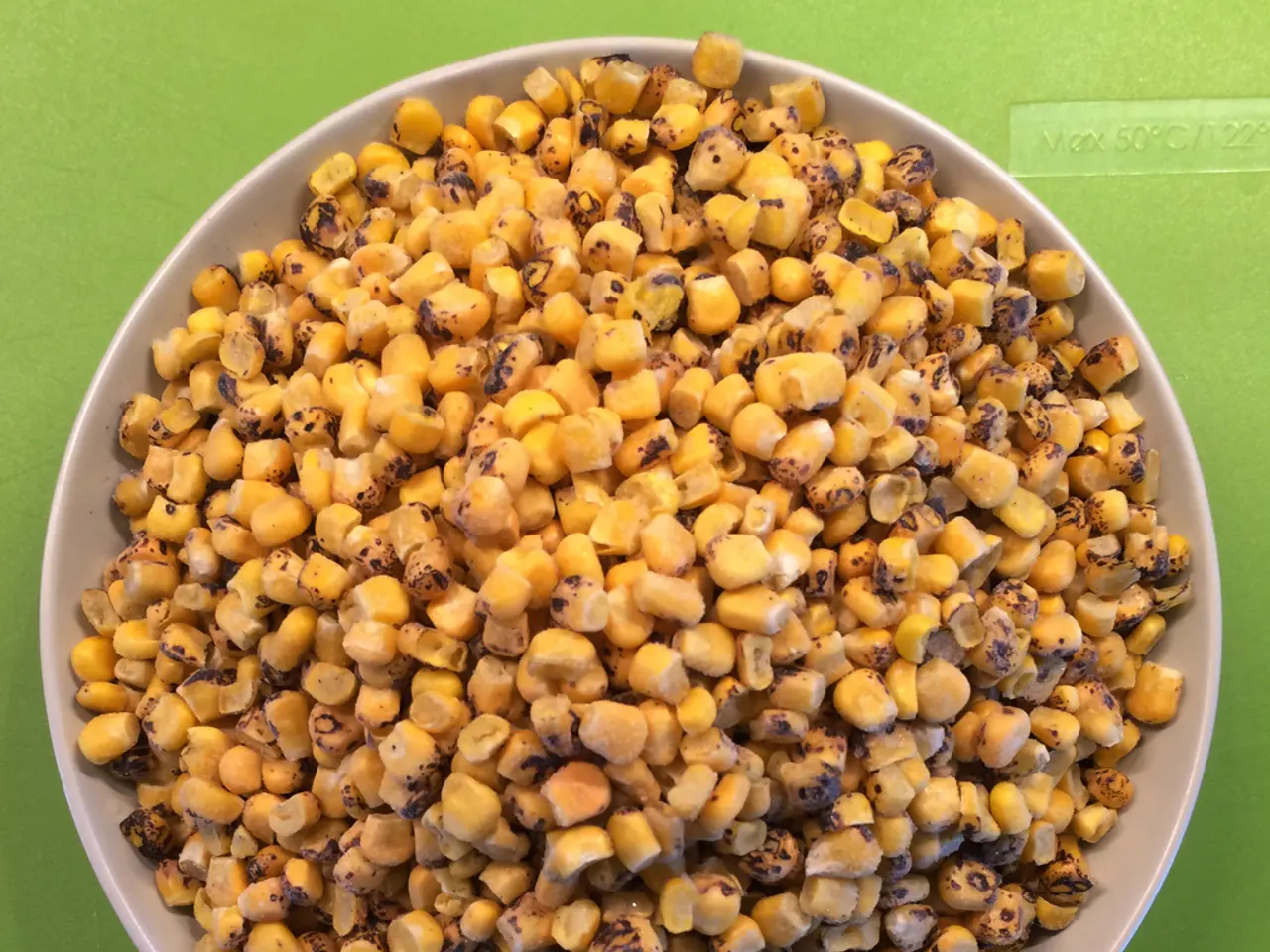Awakened Seeds Transform into Sprouted Grains, Boosting Nutritional Value
Sprouted grain porridge made with oats or quinoa can be a hearty and nutritious breakfast option for those seeking a healthier start to their day. But what makes sprouted grains so special?
The nutritional advantages of sprouted grains over regular grains are numerous. Sprouting enhances the grain's nutrient profile by increasing fiber content, soluble fiber, and important nutrients like gamma-aminobutyric acid (GABA), magnesium, potassium, zinc, and antioxidants. This process also makes grains more alkaline, which can help reduce inflammation.
Sprouted grains have a more balanced amino acid profile and a lower glycemic index, contributing to stable blood sugar levels and better digestive comfort. For instance, sprouted brown rice contains more GABA, a calming neurotransmitter, and phytonutrients like ferulic acid and gamma oryzanol, making key nutrients more bioavailable compared to regular brown rice.
Sprouted grain breads are generally superior to regular whole grain breads in fiber, antioxidants, and nutrients, and are less likely to cause rapid blood sugar spikes. Similarly, sprouted oats provide more protein and fiber than regular oats.
Sprouted grains are whole grains that have begun the germination process, activating enzymes that convert starches into simpler sugars and releasing beneficial nutrients. This biochemical transformation makes sprouted grains more nutrient-dense than regular grains.
The sprouting process can be done with various grains, including wheat, barley, quinoa, oats, and rye. These sprouted grains are commonly found in baked goods, breads, and porridge. For example, sprouted wheat, quinoa, and various other grains are widely available at health food stores as nutrient-dense sandwich bases, such as sprouted grain bread.
Sprouted barley enhances the bioavailability of fiber and micronutrients. Sprouted quinoa, barley, or brown rice can be used as the base for a filling salad. Sprouted grains undergo a biochemical transformation that enhances their nutrient profile, making them more nutrient-dense than regular grains.
Sprouted grains are easier to digest due to the breaking down of starches and proteins during the sprouting process. This improved digestibility makes them an excellent choice for those with digestive sensitivities.
Sprouted grain snacks like crackers, granola bars, and chips can serve as healthy, crunchy snacks. Sprouted grain flour can be used in baking recipes, offering a more nutritious twist.
In conclusion, sprouted grains offer a host of health benefits due to their enhanced nutrient profile and improved digestibility. Whether you're looking for a hearty breakfast, a nutrient-dense sandwich base, or a healthy snack, sprouted grains are a versatile and nutritious choice.
The sprouting process increases the nutritional value of grains by enhancing their fiber content, soluble fiber, and important nutrients such as GABA, magnesium, potassium, zinc, and antioxidants. This conversion of starches into simpler sugars in sprouted grains also makes them more alkaline, which can help reduce inflammation.
Sprouted grains have a more balanced amino acid profile and a lower glycemic index, aiding in maintaining stable blood sugar levels and promoting better digestive comfort. For instance, sprouted brown rice contains more GABA, a calming neurotransmitter, and phytonutrients like ferulic acid and gamma oryzanol, making key nutrients more bioavailable compared to regular brown rice.
By using sprouted grains like wheat, quinoa, oats, and barley in baked goods, breads, and porridge or as the base for a filling salad, one can benefit from their improved nutrient profile and enhanced bioavailability of fiber and micronutrients.
Sprouted grain snacks like crackers, granola bars, and chips can provide healthy, crunchy alternatives to regular snacks, while sprouted grain flour can be used in baking recipes for a more nutritious twist.
Incorporating sprouted grains into a health-and-wellness lifestyle can contribute to overall health due to their numerous nutritional advantages and improved digestibility, making them an excellent choice for a hearty breakfast, nutrient-dense sandwich base, or a satisfying snack.





